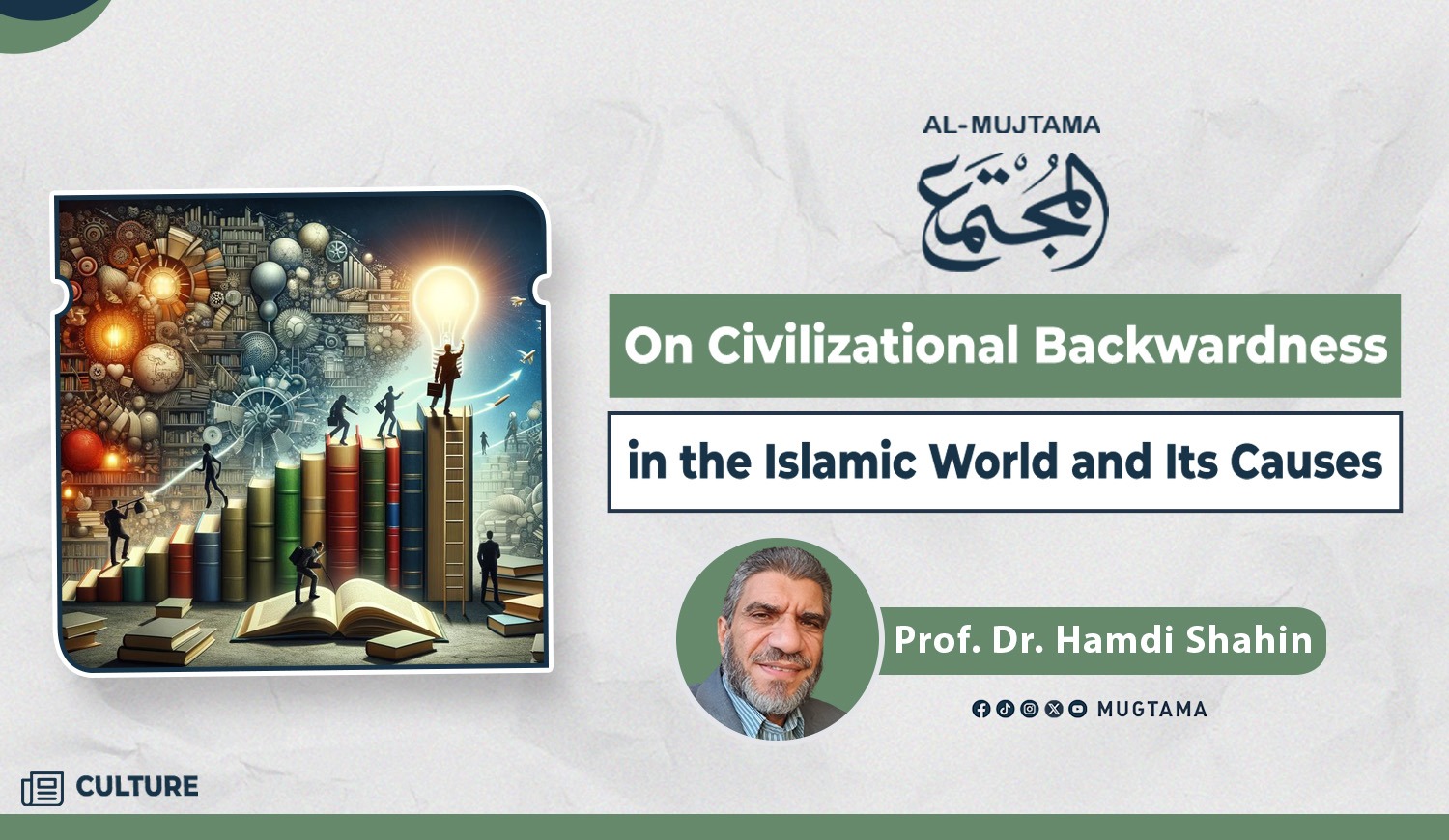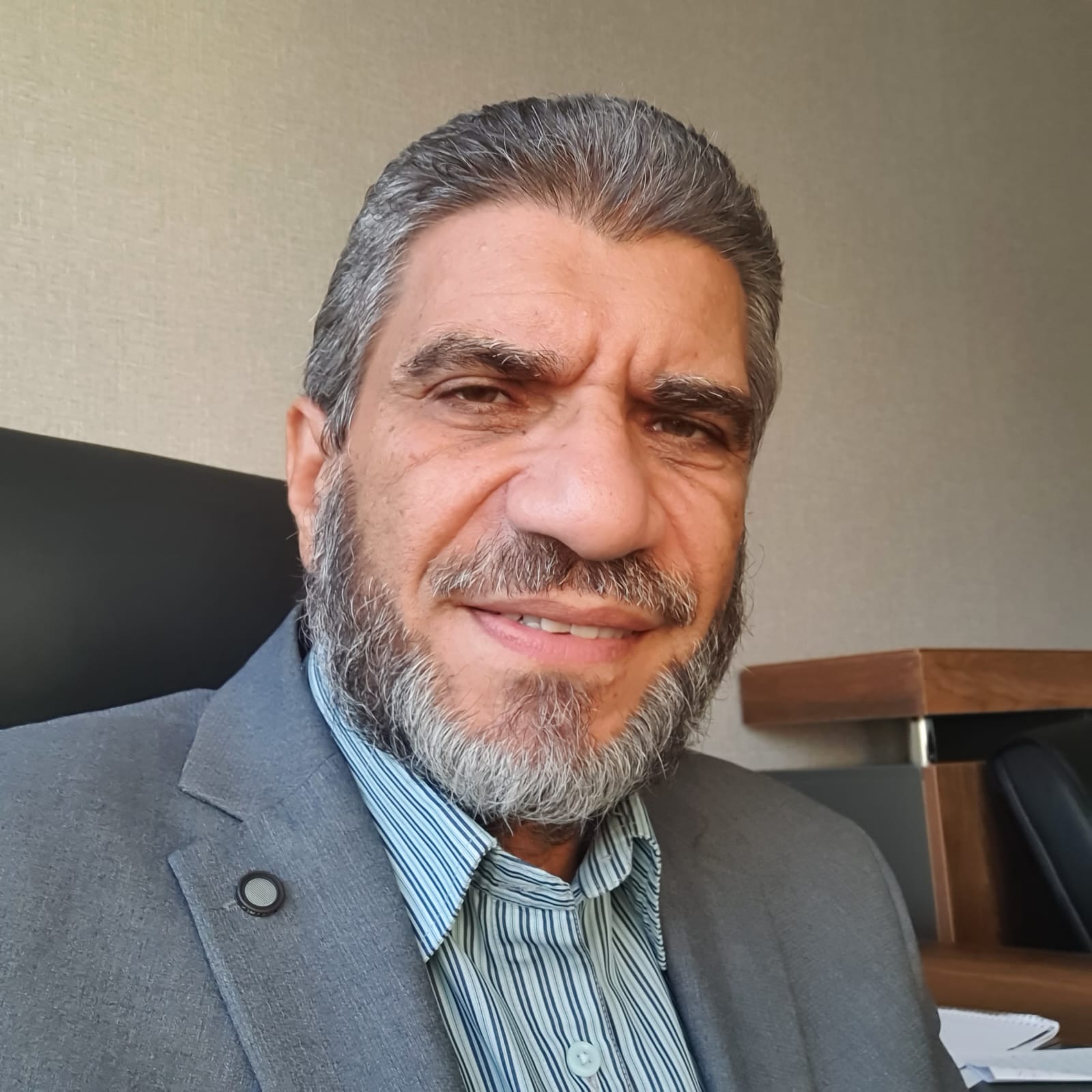On Civilizational Backwardness in the Islamic World and Its Causes

In his book “We and Western
Civilization,” Abul A'la Maududi links the civilizational decline of the Islamic world to a sense of psychological defeat before the
West, which has taken the lead in science and its applications. He writes:
“When intellectual genius and critical
thinkers disappeared among Muslims, when they abandoned the practice of
reflection, research, and investigation, and when weariness kept them from
pursuing knowledge and striving for progress, it was as if they had willingly
given up their position of leadership in the world. Meanwhile, the nations of
the West rose and advanced along this path.”
In his book “The Conditions of
Renaissance,” Malek Bennabi summarizes the causes of the Islamic world’s crisis, saying:
“The essence of the problem lies in
our intellectual crisis.”
By this, he refers to the
disconnection between Islamic identity — from which civilization should emerge
— and the current intellectual and cultural reality of the Muslim nation.
Both Muslim thinkers clarified some of
the main reasons behind the decline of Muslims, including their lag in
scientific advancement and rigorous research, as well as the conflict between
their efforts to catch up with leading nations and their deep-rooted identity —
which history has proven to be the true source and foundation of revival.
Among the manifestations of
civilizational backwardness in the Islamic world.
There are many indicators that reveal
the depth of the scientific decline into which the Islamic world has fallen for
decades — a decline that has led to its current struggles after having once
lived through centuries of scientific brilliance and civilizational pride,
founded on the authentic values of its faith-based structure, with its rich
contributions extending across the world of that era.
The nation that was addressed by the
Qur’an’s first divine command, “Read,” has reached an illiteracy rate of
about 40% among men and 65% among women, according to the 2014 report by the
Islamic Educational, Scientific and Cultural Organization (ISESCO). In the Arab
world, the Arab League Educational, Cultural and Scientific Organization
(ALECSO) reported that the illiteracy rate exceeded 19%, meaning that the number
of illiterate individuals surpassed 96 million.
Some reports attributed to several
research centers indicated that the average reading rate in the Arab world is a
quarter of a page per person per year, while in the United States it reaches 11
books per person annually, and in Britain, 7 books. However, some researchers —
such as Lee Cadwell — have questioned the accuracy of these reports, stating
that after investigating the sources they cite, he found that many of the
claimed figures were incorrect.
When looking at the situation in Arab
and Islamic universities, only 14 universities from the member states of the
Organization of Islamic Cooperation (OIC) were included among the world’s top
500 universities, according to the 2021 Times Higher Education World University
Rankings.
As for the history of the Nobel Prizes
— which are meant to honor the most distinguished scientists in their fields —
the Islamic world has received only three in the sciences. Pakistani scientist Dr. Mohammad Abdus Salam won the Nobel Prize in Physics in 1979; Egyptian
scientist Dr. Ahmed Zewail received the Nobel
Prize in Chemistry(1) in 1999; and Turkish scientist Dr. Aziz Sancar
was awarded the Nobel Prize in Chemistry in 2005.
In the field of scientific research
and development, data from 2016 indicate that member states of the Organization
of Islamic Cooperation (OIC) spent only 0.37% of their total GDP on research
and development — far below the global average of 1.75%, according to a study
by the Statistical, Economic, and Social Research and Training Centre for
Islamic Countries (SESRIC) titled Education and Scientific Development in
OIC Member States (2016).
In the Arab world, the total national
spending on scientific research in 2020 did not exceed 0.72%, whereas in the
Israeli occupation state it reached 5.44%, according to a report published on
the World Bank’s website.
According to statistics issued by the
World Intellectual Property Organization (WIPO) in 2014, the total number of
patent applications worldwide reached about 2.68 million, while in the member
states of the Organization of Islamic Cooperation (OIC), the number was 46,781
— representing only about 1.74% of the global total.
The number of Internet users ranges
from 3 per 1,000 people in Sudan to 313 per 1,000 in the United Arab Emirates,
with fewer than 50 users per 1,000 people in 11 Arab countries, according to
the Population and Development Report, Issue No. 3: International Migration
and Development in the Arab Region – Challenges and Opportunities,
published by the Economic and Social Commission for Western Asia (ESCWA),
United Nations, New York, 2007.
There is no way to bridge this
scientific gap except through a comprehensive scientific renaissance that
addresses the causes of backwardness and weakness and embraces the foundations of
civilizational renewal and scientific strength — in an era that recognizes only
the powerful in all spheres of life.
The causes of this scientific decline
in the Islamic world can be attributed to two main categories: internal and
external factors.
1- Internal Causes of Scientific
Backwardness:
These causes can largely be traced
back to a misunderstanding of the nation’s cultural and religious heritage.
This misinterpretation has, over the decades, led the cultural scene into
pitfalls for which the nation paid a heavy price in its later ages. Lacking
true insight, it was blinded by the lingering glow of its former glory,
continuing for a long time to move merely by the force of inertia.
Among these causes is the neglect of
the practical experimental sciences — the sciences of life such as medicine,
engineering, astronomy, and physics — while giving precedence to theoretical
disciplines like exegesis, jurisprudence, and history. They divided knowledge
into so-called “noble sciences,” connected to the sacred law, and “other
sciences,” related to the development of the universe — forgetting that
building and developing the world is itself a form of comprehensive worship in
Islam. Indeed, the very purpose of creation is to cultivate the world through
faith, without separation between the two. Unfortunately, they only awakened to
this mistake under the hooves of the invaders’ horses — those who had mastered
the means of science.
Closely related to these causes of
weakness is the closure of the gate of ijtihad (independent reasoning)
in the Islamic legal sciences — let alone in worldly sciences. As a result,
these fields stagnated and lost their vitality after once flowing with vigor.
Scholars confined themselves to the established schools of jurisprudence, along
with their commentaries and marginal notes. Many preachers failed to realize
that while the revealed texts are finite, life’s emerging issues are infinite;
therefore, the only viable path is continuous ijtihad, governed by its
proper principles, to apply the divine texts to the ever-changing realities of
life.
They also broadened the concept of bid‘ah
(innovation in religion) to include everything new, confusing it with the
essential notion of ibda‘ (creative innovation) required for life. They
viewed every unfamiliar idea with suspicion, and this misunderstanding
distorted the essence of the final divine message — Islam — which was revealed
to guide the movement of life until the Day of Judgment. Consequently, the
nation stood still while its rivals raced ahead into the arenas of progress,
entering the ages of steam, electricity, the atom, and space.
2- External Causes of Scientific and
Civilizational Backwardness:
There are several external causes of
scientific and civilizational backwardness, among which is the brain drain from
the Islamic world to the West. The latter succeeded in attracting many of the
brightest minds and most skilled experts. These migrations intensified in the
new millennium as a result of political unrest, popular revolutions, military
coups, and foreign interventions.
At the same time, there are numerous
traditional internal factors that drive scientists away, such as low financial
returns and limited research budgets. In contrast, the West offers attractive
conditions — including respect for scientists, moral and material appreciation,
access to a dignified standard of living, well-funded research facilities, and
an environment that encourages academic advancement and scientific growth.
__________________________________________________
(1) "Scientist Dr. Omar Yaghi has been announced as the winner of the 2025 Nobel
Prize in Chemistry, making him the second Arab to receive the award
in this field after Dr. Ahmed Zewail.
You may also like :
Book Review: “The Reality of Muslims and the Way to Uplift Them” by Sheikh Abul A'la Maududi
The Economic System in Islam (1) Broad Liberties and Fair Restrictions
Muslims' Contributions to Chemistry











